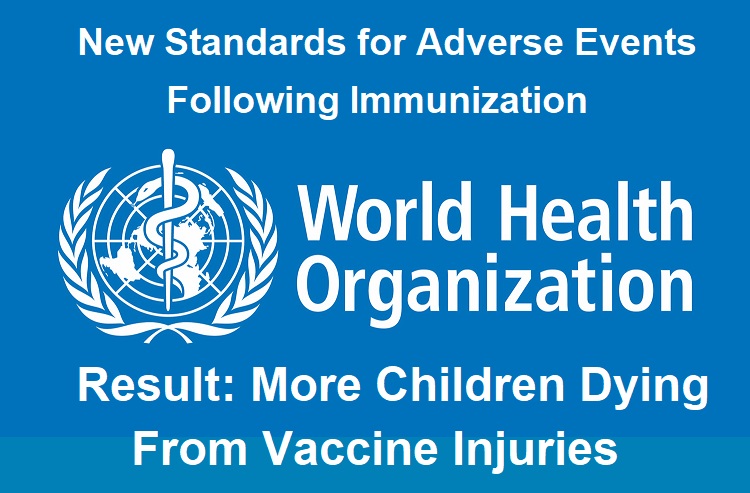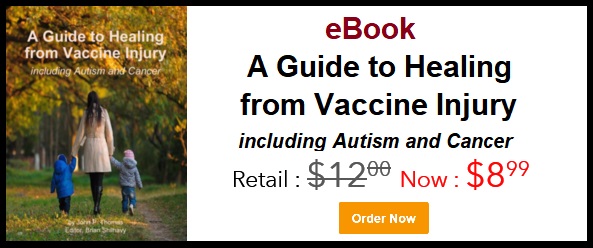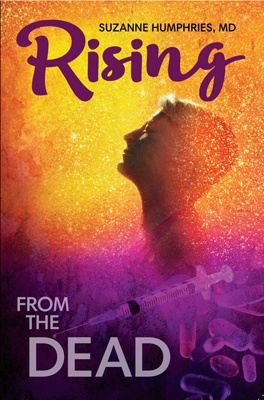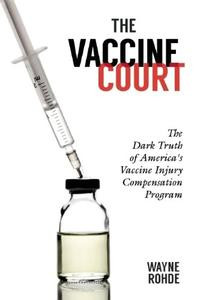
AEFI Causality Assessments: Is WHO eliminating vaccine-related deaths via subterfuge?
Altering AEFI Assessment Guidelines
by Norma Erickson
SaneVax, Inc.
In April 2017, the World Health Organization (WHO) coordinated a joint project between teams of experts from the National AEFI (adverse events following immunization) committees of India and Zimbabwe with each country’s Ministry of Health.
This project was titled an “Inter-country study to assess the inter-rater reliability of the WHO AEFI causality assessment methodology and the utility of the new WHO AEFI causality assessment software.”
The WHO had revised their AEFI assessment guidelines in 2013, but those evaluating potential vaccine reactions were doing so via paperwork.
One can only imagine how daunting a task this would be.
Just prior to the meeting referenced above, the World Health Organization made AEFI causality assessment software available to assist those reporting Adverse Events Following Immunization to do their job more efficiently.
However, doctors in private practice did not necessarily agree that the new guidelines helped protect the children of the world. In fact, they suspected just the opposite.
Instead of accurately assessing potential vaccine-reactions, the new guidelines seemed to further hinder the discovery of real vaccine-reactions, particularly when a death occurred after vaccine administration.
In July 2017, two prestigious doctors from India, Dr. Jacob Puliyel and Dr. Anant Phadke issued the following press release which is reprinted in its entirety with permission from them.

Dr. Anant Phadke
WHO ADVISED TO REVISE ITS POST-VACCINATION PHILOSOPHY
New Delhi 4 July 2017: Two leading doctors have urged the World Health Organization (WHO) to urgently revise its new methodology to classify adverse events following immunization (AEFI).
Jacob Puliyel, a pediatrician and member of the National Technical Advisory Group on Immunization, and Anant Phadke, an executive member of the All India Drug Action Network argue that WHO’s methodology does not address children’s safety.
According to the authors, WHO’s new classification of AEFI, in essence, implies that no death can result from vaccination and, if any death does occur, it is only coincidental and not due to the vaccine.
Only reactions that have been previously acknowledged in epidemiological studies can be considered as vaccine-related in the new scheme.
All deaths seen in large post-marketing phase are simply labeled as coincidental or unclassifiable deaths. They cannot be classified as vaccine-related if the vaccine had not caused a statistically significant increase in deaths in the small Phase 3 trials.
In a letter published in the prestigious Indian Journal of Medical Ethics, Puliyel and Phadke have expressed their concerns over this new classification system.
“By simply denying deaths, the new AEFI classification is liable to miss the safety signals and therefore potential dangers with new vaccines.”
They note that Sri Lanka suspended the use of a pentavalent vaccine after five deaths within four months after its introduction in January 2008 and, in 2013 Viet Nam shelved the pentavalent vaccine because it had been associated with 12 deaths.
However, in both cases, the WHO teams which investigated the deaths declared they were ‘unlikely’ to be related to the vaccines used.
The authors point out that the consequences of using the new classification are illustrated starkly in the causality assessment of 134 serious AEFI cases uploaded on the website of the Ministry of Health and Family Welfare in India.
78 of these babies survived and 58 died.
Among those who survived, the causality assessment shows nearly 50%, were reactions to the vaccine.
On the other hand, not even one death was classified as vaccine-related. 96% of deaths were simply classified as unclassifiable or coincidental.
“The resulting paradox is evident,” Puliyel and Phadke point out. “If a child is admitted to hospital with intractable convulsions after vaccination, if it survives, the reaction could be classified as vaccine-product–related, but if it dies it will be classified as ‘coincidental death.”
WHO has redefined ‘cause and effect’ in AEFI. According to the revised AEFI Manual, the term ‘causal association’ refers to “a cause and effect relationship between the causative factor and a disease with no other factor intervening in the processes”.
This would mean that AEFI in children with an underlying heart disease who may develop symptoms of cardiac de-compensation after vaccination (due to a vaccine-caused elevation in temperature or stress from a local reaction at the site of vaccination), would not be considered causally related to the vaccine although vaccination contributed to cardiac failure in this specific situation.
This is of particular concern since the Global Advisory Committee on Vaccine safety documented that a large number of deaths in children after receiving Pentavalent vaccine were those with some pre-existing heart disease, the authors say.
“The new definition of ‘cause and effect’ is potentially harmful to children with underlying diseases as it removes the impetus to provide them special care during immunization,”
The authors also note.
“In view of the above, it is necessary that the WHO’s AEFI manual be evaluated and revised urgently,” the authors said pointing out that AEFI reporting is meant to ensure that vaccines given to children are safe.
“Safety of children (child safety) rather than safety for vaccine manufacturers needs to be the emphasis.” Also many ambiguities in evaluating AEFI under the new classification scheme erode confidence in the scheme’s ability to evaluate rare adverse events and act decisively to protect children.”
Letter to the editor of the ‘Indian Journal of Medical Ethics”
To make sure that medical professionals in India were also aware of the potential problems with the ‘new’ WHO AEFI classification system, Dr. Puliyel, and Dr. Phadke wrote a letter to the editor of the “Indian Journal of Medical Ethics” expressing their dire concerns.
According to this letter, there were 132 cases of children in India being hospitalized after the administration of a pentavalent vaccine between 2012 and 2016. 54 of these children died. When these adverse events were analyzed using the new WHO criteria, NOT one of the deaths was classified as potentially vaccine-related.
Read “Deaths following pentavalent vaccine and the revised AEFI classification” to confirm this fact.
WHO Response?
To the best of our knowledge, the World Health Organization has not responded to these doctors’ concerns during the last 16 months. On the contrary, they published a new manual in January 2018 entitled, “Causality Assessment of Adverse Events Following Immunization.”
The introductory pages of this manual expresses thanks to the following members of GACVS (Global Advisory Committee on Vaccine Safety): Nick Andrews, Marion Gruber, Robert Pless, Xavier Kurz, Gagandeep Kang, and Samin Akram provided very helpful feedback during the development phase prior to the final review during the meeting in December 2017.
One has to wonder what sort of ‘very helpful feedback’ the GACVS members provided that resulted in the World Health Organization ignoring the concerns expressed by two eminent doctors operating in the real world, those who witness potential adverse reactions to vaccines personally.
The SaneVax Team encourages every medical practitioner in the world to thoroughly read the WHO-sponsored “Causality Assessment of Adverse Events Following Immunization,” then decide:
Who is WHO protecting – children or vaccine manufacturers?
Read the full article at SaneVax.org.
Leaving a lucrative career as a nephrologist (kidney doctor), Dr. Suzanne Humphries is now free to actually help cure people.
In this autobiography she explains why good doctors are constrained within the current corrupt medical system from practicing real, ethical medicine.
One of the sane voices when it comes to examining the science behind modern-day vaccines, no pro-vaccine extremist doctors have ever dared to debate her in public.
-
Book – The Vaccine Court, by Wayne Rohde – 240 pages
“The Dark Truth of America’s Vaccine Injury Compensation Program”
FREE Shipping Available!
ORDER HERE!








One Comment